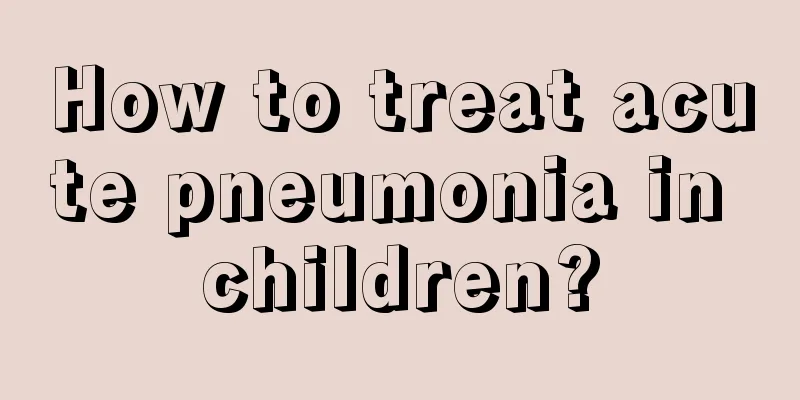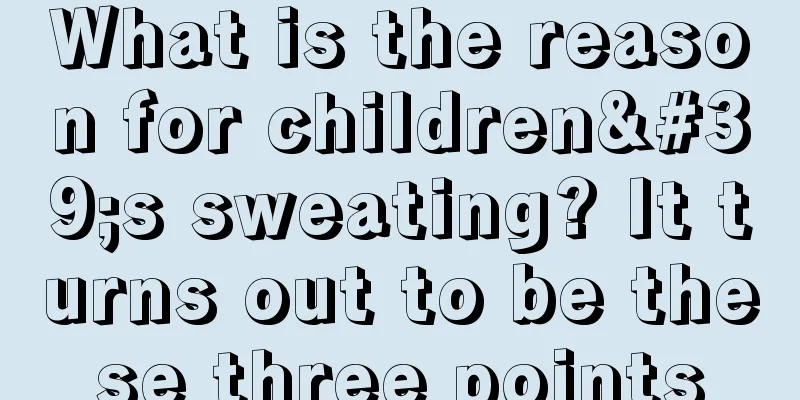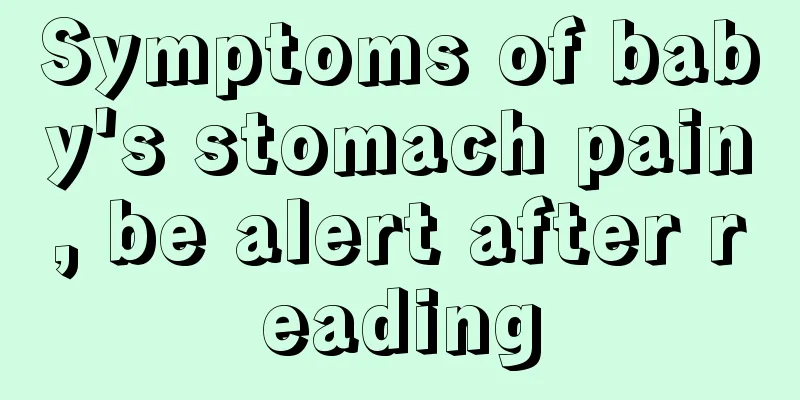How to treat acute pneumonia in children?

|
The most vulnerable stage of a person's growth is naturally the childhood stage. Any symptoms that occur during this stage will always cause people to fall into endless worry and panic. Even a small cough or sneeze would make you worry about whether you have caught a cold or have gotten too hot. If a child gets acute pneumonia, parents would naturally be extremely worried. So how should children be treated after they have acute pneumonia? Treatment measures: Reasonable and comprehensive measures should be taken for this disease. Actively control infection, keep the airway open, correct hypoxia, prevent and treat complications, and enhance the body's resistance to promote recovery. General care and supportive care: 1. The room temperature should be kept at around 20°C and the relative humidity should be 55-65% to prevent respiratory secretions from drying up and becoming difficult to cough out. In winter, you should open windows regularly for ventilation, 30 minutes each time, 3 times a day, avoid convection wind, pay attention to rest, implement strict respiratory isolation system, and prevent cross infection. Closely observe changes in the condition and provide appropriate treatment in a timely manner. For children with a bluish-gray complexion, cyanosis around the mouth, irritability or drowsiness, attention should be paid to changes in heart sounds and heart rate, and observation should be made for the occurrence of myocarditis. If the cyanosis worsens after feeding or crying, and is not relieved after oxygen inhalation, the cause should be identified and treated in a timely manner. 1. Pay attention to nutrition and water supply; breastfeeding should be done as much as possible. If bottle-feeding is required, the amount and concentration of milk can be determined according to the baby's digestive function and condition. If the baby has diarrhea, skim milk should be given. For infants or children, a light, easily digestible diet rich in multiple vitamins should be provided. Children in the recovery period should be given nutritious, high-calorie food. For critically ill children who cannot eat, intravenous infusion should be given to supplement calories and water. The daily fluid volume should be 60-80ml/kg. Whole blood or plasma can be transfused if necessary. People who also suffer from rickets should be treated with vitamin D3 injections. 2. To keep the respiratory tract open, nasal crusts, nasal secretions and respiratory sputum should be removed promptly. Improve ventilation function, increase alveolar ventilation, correct hypoxia, and reduce CO2 retention. For those with a lot of thin phlegm, you can turn over and pat your back repeatedly to help the phlegm be discharged. You can also take the expectorant ammonium chloride mixture orally: 1 ml/year, 3 times a day. For those with thick sputum that is difficult to cough up, suction or ultrasonic atomization can be used for inhalation. The liquid formula is 30 ml of normal saline or distilled water, 20,000 U of gentamicin, 5 mg of a-chymotrypsin, and 1 mg of dexamethasone. Each inhalation is for 10-15 minutes, 2-3 times a day. (ii) The use of anti-infective drugs should be based on age, severity of the disease, previous medication history, and reference to drug sensitivity tests to select appropriate anti-infective drugs. Children's immunity is still developing and improving, so their ability to resist diseases is much weaker than that of adults. Parents should naturally understand their children's physical health and be able to detect any problems in their physical condition in a timely manner. This is the most important thing. |
<<: What should I do if my child has a tooth cavity?
>>: What should I do if my child has congenital finger deformities?
Recommend
Baby recipes and recipes
When babies are a few months old, they also need ...
Does your child have purulent discharge from his eyes?
If your baby has purulent secretions in his eyes,...
What should I do if my baby has a runny nose or rhinitis?
It is also a disease that causes a lot of trouble...
What to do if a child has a fever
What to do when a child has a fever? This is a pr...
How to care for newborns during the recovery period of pneumonia?
For newborns, the body's immunity is very poo...
Can babies eat blueberries?
Many people like to eat blueberries. The nutritio...
The child drinks too much water and urinates frequently
Because the weather is dry, many parents like to ...
Children catch colds repeatedly, and parents ignore 7 points!
If a child does not have any congenital disease b...
Reasons why babies sneeze
What's wrong with children who sneeze frequen...
What are the clinical manifestations of Henoch-Schonlein purpura in children?
If a child suffers from allergic purpura, the fir...
The correct way to brush your teeth
Brushing teeth is something you have to do every ...
What are some weight loss exercises for students?
Even many students who are still in school have b...
Baby's hair is hot and his hands and feet are cold
We all know that babies under three years old are...
What should I do if my baby has a blocked nose and snores when sleeping?
Many children will suffer from nasal congestion e...
Black bruises on baby's gums
Many babies love to eat sweets, so their teeth st...









